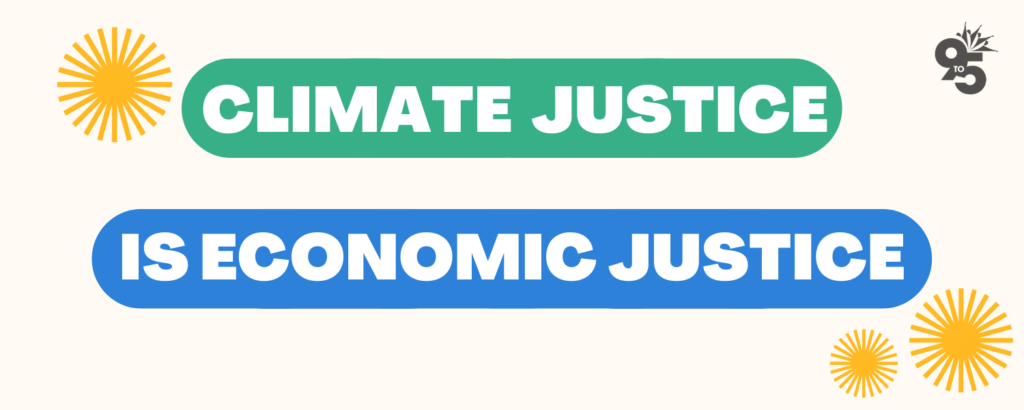
We know the climate crisis doesn’t exist in a bubble, but it can be hard to connect the dots to our families and communities. When systematic injustice based on race, class and gender intersect with the climate crisis, people of color, women, and working people are impacted the most.
As politicians and corporations continue to ignore and deny the climate crisis, ordinary people are dealing with the very real effects on our health, our finances and our outlook for the future. It is up to us to hold the powerful to account, and advocate for changes that will protect, improve, and ultimately save ourselves and our communities from climate catastrophes.
The system was rigged against us from the start– redlining pushed people of color and low-income workers into unhealthy or unsafe areas that would ultimately be the most polluted and likely areas for climate-driven disasters to occur. Now, we face the many effects of these policies like disastrous health effects from pollution, high utility bills from inefficient housing, or only being able to afford to live in areas that are more likely to be flooded, affected by wildfires, or other weather events.
You don’t have to take my word for it– all you have to do is look at headlines from the past year.

Our communities are already experiencing a climate disaster that endangers our economic freedom while the wealthy, corporations and most politicians pretend we have time to spare. We don’t.
As rent continues to rise along with groceries, utilities, and gas, more working people will be forced into housing most at risk during climate disasters. Now more than ever we need policies that will provide green jobs to the people most affected by the climate crisis and improve the long-term safety and sustainability of our housing, environment, and communities.
That means passing legislation that prioritizes the needs of people of color, low-income workers, and families. Guaranteeing good jobs that help us build a green infrastructure, and good paying jobs that support a green economy, like child care, elder care, and teaching, means creating a people-centered economy that supports everyone.

